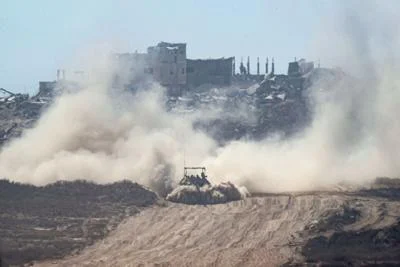An Associated Press report states that Israel has approved its largest land seizure in the occupied West Bank in over three decades, according to the anti-settlement watchdog group Peace Now. The organization reported on Wednesday that Israeli authorities recently sanctioned the appropriation of 12.7 square kilometers (nearly 5 square miles) of land in the Jordan Valley, marking the most extensive single land grab since the 1993 Oslo Accords.

This latest seizure follows two smaller appropriations earlier in 2024: 8 square kilometers in March and 2.6 square kilometers in February. These actions have made 2024 the peak year for Israeli land seizures in the West Bank, as reported by Peace Now.
The newly appropriated land is located northeast of Ramallah, the headquarters of the Western-backed Palestinian Authority. By declaring these areas as state lands, the Israeli government has opened them up for potential lease to Israelis while prohibiting private Palestinian ownership.
This move is likely to exacerbate already heightened tensions linked to the ongoing Israel-Hamas conflict in Gaza. The West Bank has seen a surge in violence since the start of the war, with Israel conducting near-daily military raids that often result in deadly confrontations with Palestinian militants.

The expansion of settlements in the occupied West Bank is viewed by Palestinians as the primary obstacle to a lasting peace agreement. Most of the international community considers these settlements illegal or illegitimate under international law.
Israel’s current government, however, considers the West Bank to be the historical and religious heartland of the Jewish people and opposes Palestinian statehood. Israel captured the West Bank, Gaza Strip, and East Jerusalem in the 1967 Mideast war, territories the Palestinians seek for a future state.
Currently, over 500,000 Jewish settlers with Israeli citizenship live in more than 100 settlements across the West Bank, while 3 million Palestinians in the area live under Israeli military rule. The Palestinian Authority administers parts of the West Bank but is barred from operating in 60% of the territory where the settlements are located.
This latest land seizure underscores the ongoing challenges to peace in the region and the complexities surrounding the Israeli-Palestinian conflict. As tensions continue to rise, the international community will likely be closely watching how this development impacts the prospects for a two-state solution and regional stability.



